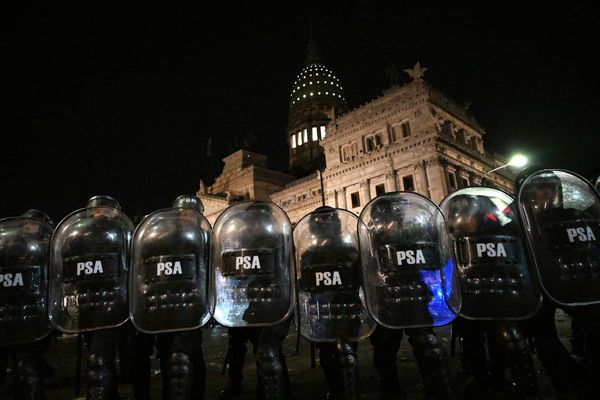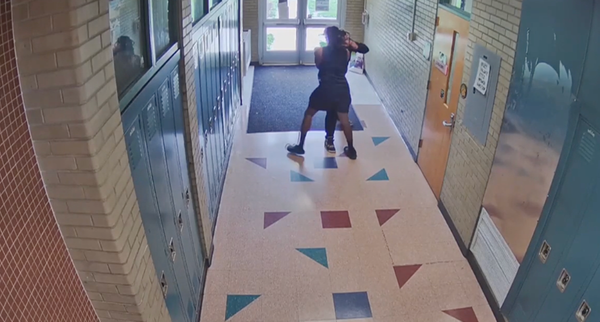
Should there be such a thing as polite football circles, there’s fresh names to drop. Shelve that talk of the Monaco enganche with an xG to die for, or the interesting things that Bayer Leverkusen are doing with inverted full-backs.
In this era of LinkedIn, of High Performance, of CEO diaries, of Bazball as a risk-taking design for life, it’s time to celebrate football’s blossoming corporate culture, that of the sporting director, director of football, director of football operations, technical director and other variations besides. All hail soccer’s smartest guys in the room.
Not all of these roles are the same; a technical director is likely to oversee coaching at all levels, a director of football might only concentrate on first-team recruitment, while heads of football oversee the entire playing department to report directly to the owners like a finance or sales director might.
Amid a footballing summer without a major men’s international tournament, as voracious fans long-read for detail, transfers dominate news agendas. Thus, those executives who operate in the space between dressing room and boardroom have become Very Important Persons. Meanwhile, football’s exec class is on the move; a quasi-transfer market of its own for the game’s chino-clad operatives is currently taking place.
You may already know the names. Tim Steidten, freshly in at West Ham, having worked at Werder Bremen and previously presided over interesting things at Leverkusen. Jörg Schmadtke, another experienced Bundesliga hand currently working at Liverpool on a temporary basis, is by old pal Jürgen Klopp’s side until September. Monchi, new president of football operations at Aston Villa, and regarded as the super brain behind Sevilla, a transfer alchemist non pareil. Scott Munn, chief football officer at Tottenham, a former chief executive officer of the City Football Group, of whom Daniel Levy – no less – said: “will take responsibility for the leadership and management of our football activities to instil best practice both on and off the pitch”.
Here, then, are modern football’s boys of summer, sending the WhatsApps, detailing lawyers, working out amortisation, hauling wheeled suitcases through airport concourses, slugging down limitless coffees. And like Brad Pitt’s Billy Beane depiction in the film of Michael Lewis’s Moneyball, the urtext of sporting directors across global sport, perhaps not actually watching the games.

Formerly backseat drivers have found new prominence. John Murtough, at the club since 2013, football director since 2021, has lately been pushed to the fore by Manchester United, quoted on press releases, lurked in club-issue photos. Meanwhile, when Manchester City released their video of Pep Guardiola handing over the Champions League trophy to Sheikh Mansour in his Abu Dhabi palace, he was joined by Txiki Begiristain, City’s director of football, as well as the chief executive, Ferran Soriano, and the chairman, Khaldoon al-Mubarak.
City’s structure pairs a genius coach with operatives who have enough self-determination to curb said genius’s wildest instincts, engendering trust to keep him happy by feeding a flow of talent. Even before winning 2023’s treble, City’s front office was already regarded as “best in class”, as incoming Dragon’s Den dragon Gary Neville terms it, the model to follow. Old-style managers who ran clubs from top to bottom have become an extinct breed in the top two divisions of English football.
The thought of a manager having to work with an executive in control of transfers and perhaps even the future of the manager himself was anathema. “The most important person at the football club is always the manager,” as Alex Ferguson repeatedly stated, as well he might, but even Ferguson would now have to embrace such modern structures. The days when a manager’s thoughts on players were scribbled on scraps of the Daily Express and his scouting network was trusted pals working on the nod are practices now mothballed.

Where Europe has long worked this model, from Carles Rexach working behind Johan Cruyff at Barcelona, to Juni Calafat, hailed as the guru behind Real Madrid’s current success with Brazilians like Vinícius Júnior, Éder Militão and Rodrygo to Bayern Munich in May firing the chief executive Oliver Kahn and the sporting director Hasan Salihamidzic even as an 11th successive title was collected, English football only recently accepted this orthodoxy of structure.
The most celebrated sporting director in English football is probably Michael Edwards, who stepped away from Liverpool at the end of the 2021-22 season. Edwards, a bachelor of engineering in informatics from Sheffield University, would not qualify as a classic football man but via data analysis at Portsmouth and Tottenham was appointed sporting director just as Klopp arrived at Anfield. A club previously wracked by indifferent recruitment became transformed. Liverpool, through signings like Mohamed Salah and Sadio Mané, could compete with the collective spending Abu Dhabi billions at City.
While Klopp took on godlike status, certain shrewdies paid tribute to Edwards’s genius, only for him to depart. That replacement and previous underling Julian Ward quit before the end of the following campaign threw up all types of speculation about the ease of working with Klopp. Just who had been behind misfires like Darwin Núñez and Arthur Melo, the last-gasp loan from Juventus who played just 13 minutes?
Since success has many fathers, that Liverpool’s fortunes slid after Edwards’s departure may be coincidence. Despite constant speculation linking him with a return to football he has not yet chosen to exhibit his Midas touch elsewhere. Like managers and players, sporting directors may only fit certain clubs and the sainted – in Seville – Monchi had a less than satisfactory time at Roma from 2017 to 2019, unable to operate within the club’s culture, with Francesco Totti being on his shoulder. Monchi’s usual churn of players failed to produce a winning team before a return to Seville brought two more Europa League trophies.
Where might football’s executive class come from? While Edwards came via academia one of the more successful Premier League football directors is Dougie Freedman at Crystal Palace, a popular former player who brought to the club talent like Michael Olise and Eberechi Eze. When Leicester won the 2016 Premier League title, Steve Walsh was the veteran scout credited with unearthing Jamie Vardy and N’Golo Kanté and subsequently taken on as Everton’s director of football, only to carry his share of blame for £150m of errant spending.
At Sevilla, Monchi was replaced by Victor Orta, well-regarded within insider circles, once hailed for bringing Marcelo Bielsa to Leeds, less so for replacing him with Jesse Marsch. Orta’s fall, sacked in May following barracking by Leeds fans in a defeat at Fulham, presents a parable for the sporting director being almost as perilous a existence as a football manager.
Last season, within the Premier League, a trend took hold, that of sporting directors, previously anonymous suits, being targeted. Orta, Fabio Paratici at Tottenham, Laurence Stewart, Chelsea’s co-sporting director alongside Paul Winstanley, Ward at Liverpool, Rasmus Ankersen at Southampton: all were names taken in vain on terraces as well as social media.
Even the smartest guys struggle to avoid scapegoating. Transfers have become binary, categorised coldly into success and failure. Where players and managers can physically affect their destiny, those chaps with laptops and contacts books have no such recourse. And should your team start struggling there’s now someone else to be impolite about.







